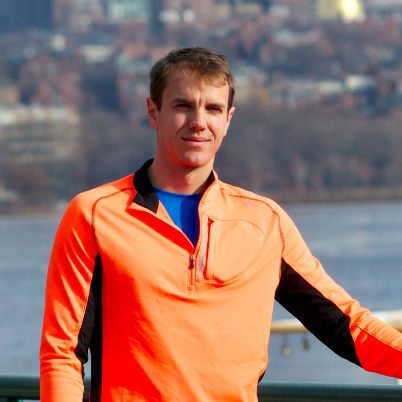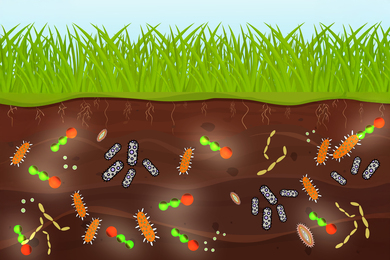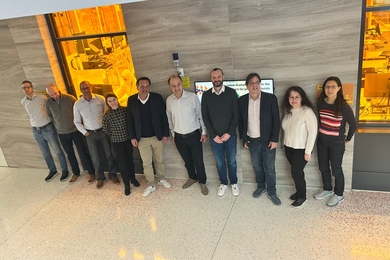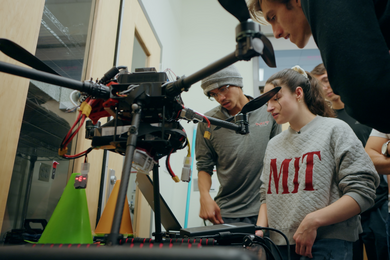MIT graduate student Joseph Azzarelli's research focuses on developing low-cost, sensitive sensors that could potentially be used to detect bombs — and help prevent tragedies like last year's Boston Marathon bombings.
On April 21, Azzarelli, a PhD chemistry student, ran 26.2 miles in honor of slain MIT Police Officer Sean Collier as part of the MIT Strong marathon team. While that finish line is now behind him, his hours in the lab working on these "bomb-sniffing" sensors have become, in their own way, a sustained response to the bombings.
As part of the Swager Lab, Azzarelli is developing sensors that can detect gases in very low concentrations. In the hands of anti-terrorism teams, he explains, these could be valuable tools for detecting toxic gases and finding undetonated explosives — which emit trace amounts of telltale molecules, usually sniffed out by trained dogs.
Even when certain chemicals are essentially molecular "needles" in the environmental "haystack," their presence can be "very meaningful in terms of the information it conveys," Azzarelli notes. This type of data could also be useful in a variety of other applications — such as grocers monitoring food spoilage or factory owners concerned with air quality.
But Azzarelli ticks off three major hurdles in his research. The first, signal transduction, is in the chemistry: "What are the underlying properties of materials you can exploit to maximize the output from the smallest input?" he says. Challenge two, he says, is fundamentally an engineering problem: "How do you take a process that works in a lab setting and put it into devices that will function in the real world" — and, ideally, are wireless, and can withstand harsh weather and rough handling? His ultimate concern, however, is cost: For cities and businesses to adopt this technology, the devices and materials must be inexpensive and commercially available.
Azzarelli went into this research with the belief that making "chemical insight" accessible could have a host of societal benefits, including public safety. And that makes sense to him on a personal level. "I'd been keenly aware of the groundbreaking counter-explosives work that members of the Swager Group had accomplished before I came to MIT, and had helped to implement in places like Afghanistan and Iraq," he says. "But last year's bombings in Boston made me realize the global importance of this work.”






